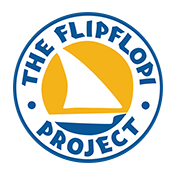From Kenya to Zanzibar, Tanzania – a historic moment for the world’s first plastic dhow
We set off on the Pemba channel crossing during the early hours of the morning whilst it was still dark, using the stars as our guide.
We had intended to spend a few days on this remote, pristine island, decompressing on the boat but instead received a welcome surprise from conservation and ecotourism innovators, Kwanini Foundation and Manta Resort, who kindly hosted us for our 2 days on the island.
Pemba feels like paradise lost, a beautifully untouched part of the world, one of the few remaining natural gems that has not been enveloped by tourism and pollution. It reminded us all why we are so committed to this project – to conserve the natural world and home on which we all depend.
The Manta resort and Kwanini foundation is a positive example of sustainable tourism that could be replicated by other islands on the Indian Ocean. They have a clear vision for Pemba which is to make a positive contribution to the future of the island, by working directly with the local communities. Recognising that tourism is so important to island like this, they set about asking themselves ‘Kwanini’ (‘why’): ‘Why is conservation important?’ ‘Why are communities important for tourism?’
Interestingly, they have concluded that “tourism is the only sustainable driver of conservation in Africa” – as such believe it’s vital that they help define the right type of tourism that is based strongly in conservation and sustainability.
We look forward to following these guys more closely as they focus on their 3 pillars of sustainability: marine and terrestrial conservationism, environmental (waste management), and educational activities. Particularly exciting is a new plastic waste initiative they are working on in partnership with Sweden. As described by Matthew, CEO of Kwanini:
“the idea is to purchase plastic from young people living on Pemba, and incinerate these to generate electricity: a fully circular and sustainable solution to the problem of plastic dumped over the island”
After 14 days at sea, and sailing over 500km, we arrived at our final destination, the historic port of Stone Town. With high attendance from local and national media, this marked a turning point in the Flipflopi story, as we started to engage the Tanzanian people in the plastic revolution.



